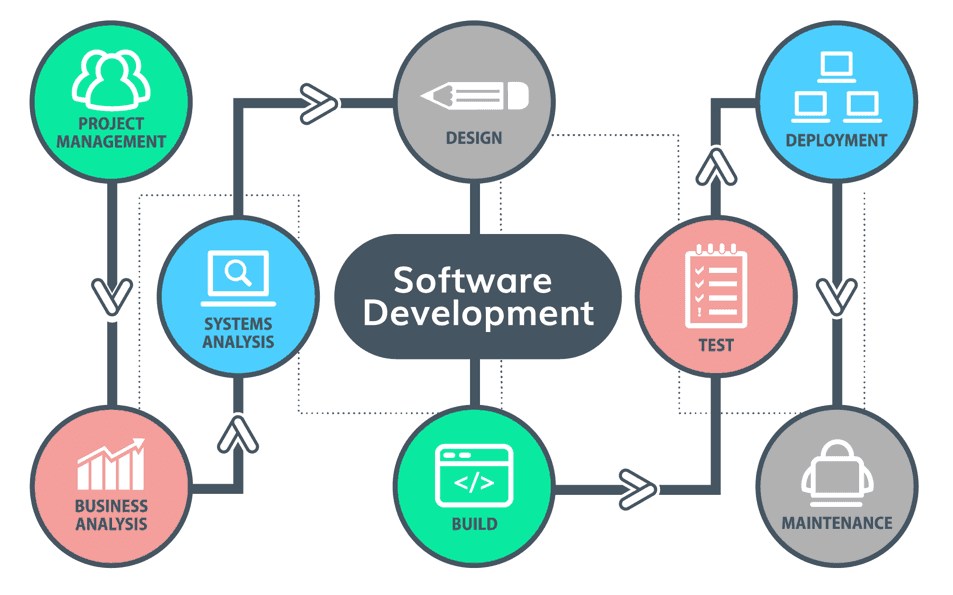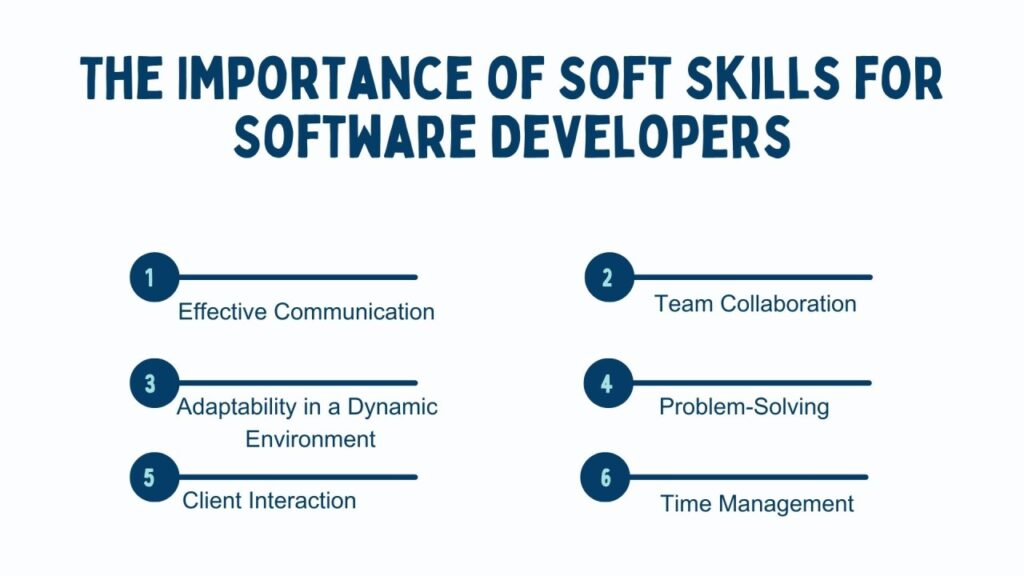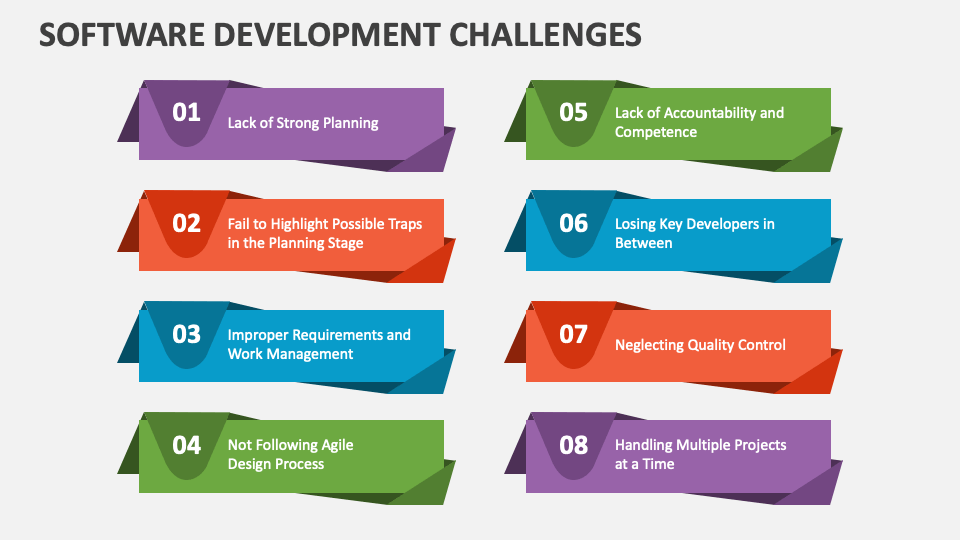SOFTWARE DEVELOPMENT
INTRODUCTION
Software development is the backbone of our digital world, transforming abstract ideas into tangible solutions that seamlessly integrate into our lives. It involves gathering requirements, crafting designs, coding, testing, and deploying software applications. This multifaceted process demands precision, creativity, and a deep understanding of technology to meet objectives and exceed user expectations. While challenging, software development offers immense rewards, including the satisfaction of solving real-world problems and continuous opportunities for learning and innovation. Developers need a diverse skill set, including proficiency in programming languages, problem-solving abilities, and effective communication skills.
The software development life cycle begins with requirements gathering and progresses through design, coding, testing, and deployment phases. Rigorous testing ensures the software meets requirements before deployment, marking an ever-evolving field that offers a rewarding career path for tech enthusiasts passionate about making an impact through digital solutions.

THE IMPORTANCE OF SOFT SKILLS IN SOFTWARE DEVELOPMENT
1. Effective Communication: Crucial in software development, it enables developers to convey complex technical concepts clearly and concisely to both technical and non-technical stakeholders. This includes the ability to listen actively, ask clarifying questions, and present information in a structured and easy-to-understand manner.
2. Teamwork and Collaboration: Vital in software development projects, which often involve multiple team members working together to achieve a common goal. The ability to work effectively as part of a team, share ideas, and resolve conflicts constructively is essential for successful software development.
3. Problem-solving: A fundamental skill for software developers, as they are constantly faced with challenges and unexpected issues that require creative solutions. The ability to analyze problems, identify root causes, and develop innovative solutions is crucial for software development success.
4. Adaptability: Key in the fast-paced and ever-changing world of software development. The ability to embrace new technologies, learn new programming languages and frameworks, and adapt to changing requirements is essential for software developers to remain relevant and successful in the industry.
In summary, while technical expertise is undoubtedly important, successful software developers must also possess strong soft skills to excel in their field. Effective communication, teamwork and collaboration, problem-solving, and adaptability are four key soft skills that are essential for software developers to thrive in the dynamic and challenging world of software development

THE PROGRAMMING LANGUAGES FOR SOFTWARE DEVELOPMENT
In the vast landscape of software development, selecting the right programming language is crucial for project success. Let’s delve into some of the top programming languages widely used today:
1. PYTHON:
Python has surged in popularity due to its versatility, simplicity, and readability. It’s favored for web development, data science, machine learning, and AI, thanks to its extensive standard library and third-party modules.
2. JAVA:
Known for its portability, security, and reliability, Java is a stalwart in enterprise-level applications, web development, and Android app development. Its platform independence and robust ecosystem make it a preferred choice.
3. JAVASCRIPT:
JavaScript powers dynamic and interactive web pages, adding functionality like form validation and animations. Its ubiquity in web browsers and support from frameworks like React, Angular, and Vue.js make it indispensable for web development.
4. C++:
Renowned for high performance and control, C++ is used in operating systems, embedded systems, and game development. Its low-level access to hardware resources and memory management makes it ideal for resource-intensive applications.
5. C#:
Developed by Microsoft, C# is valued for its ease of use, rich library support, and integration with the .NET framework. It’s favored for desktop applications, web services, and mobile apps, thanks to its versatility and Visual Studio support.

ESSENTIAL SOFTWARE DEVELOPMENT TOOLS
1. Version Control Systems (VCS): Git and Subversion are popular VCS tools that track changes to source code, enabling collaboration, version history management, and codebase synchronization.
2. Integrated Development Environments (IDEs): IDEs like Visual Studio, Eclipse, and IntelliJ IDEA offer a suite of tools for coding, debugging, and project management, enhancing developers’ efficiency and code quality.
3. Build Automation Tools: Tools such as Maven, Gradle, and Jenkins automate the build, testing, and deployment processes, ensuring consistency and efficiency in software development workflows.
4. Testing Frameworks: Testing frameworks like JUnit, TestNG, and Cucumber facilitate automated testing, enabling developers to verify code functionality, identify bugs, and maintain software quality.
5. Containerization Tools: Docker and Kubernetes streamline the deployment and management of software applications by packaging them into lightweight, portable containers, ensuring consistent performance across different environments.
These essential tools empower software engineers to collaborate effectively, streamline development workflows, and deliver high-quality software products efficiently.
CHALLENGES IN SOFTWARE DEVELOPMENT
Software development is a complex and challenging process, presenting numerous obstacles. Developers must contend with rapidly evolving technologies, requiring them to stay abreast of new frameworks, languages, and tools to remain effective. Managing intricate project requirements is another hurdle, as software projects often involve multiple stakeholders with varying needs. Ensuring the final product satisfies all parties is a formidable task. Code quality and security are paramount; bugs can lead to data breaches, system failures, and financial losses. Developers must write secure, reliable code and implement thorough testing to prevent issues. Meeting tight deadlines and budgets is a common challenge. Projects are frequently time-sensitive and costly, demanding efficiency from developers. A significant skills gap exists in the industry, with high demand for skilled developers but insufficient qualified individuals to fill these roles, complicating recruitment for companies.
Despite these challenges, software development is a rewarding career, offering the chance to work with cutting-edge technologies and create impactful products. For those passionate about technology and problem-solving, a career in software development is a fitting choice.

CONCLUSION
Software development presents both challenges and opportunities for professionals in the field. While it demands technical proficiency, soft skills such as communication and teamwork are equally essential for success. Keeping up-to-date with the latest technologies and tools enables developers to maximize their potential and deliver high-quality solutions.
Despite challenges like managing project requirements, ensuring code quality and security, and meeting deadlines, those who embrace these obstacles find fulfillment in the dynamic nature of software development. It’s a rewarding career path that allows individuals to make meaningful contributions through innovative solutions that drive progress and enhance lives. With dedication and continuous learning, software developers can thrive in this ever-evolving field and leave a lasting impact on the world.
